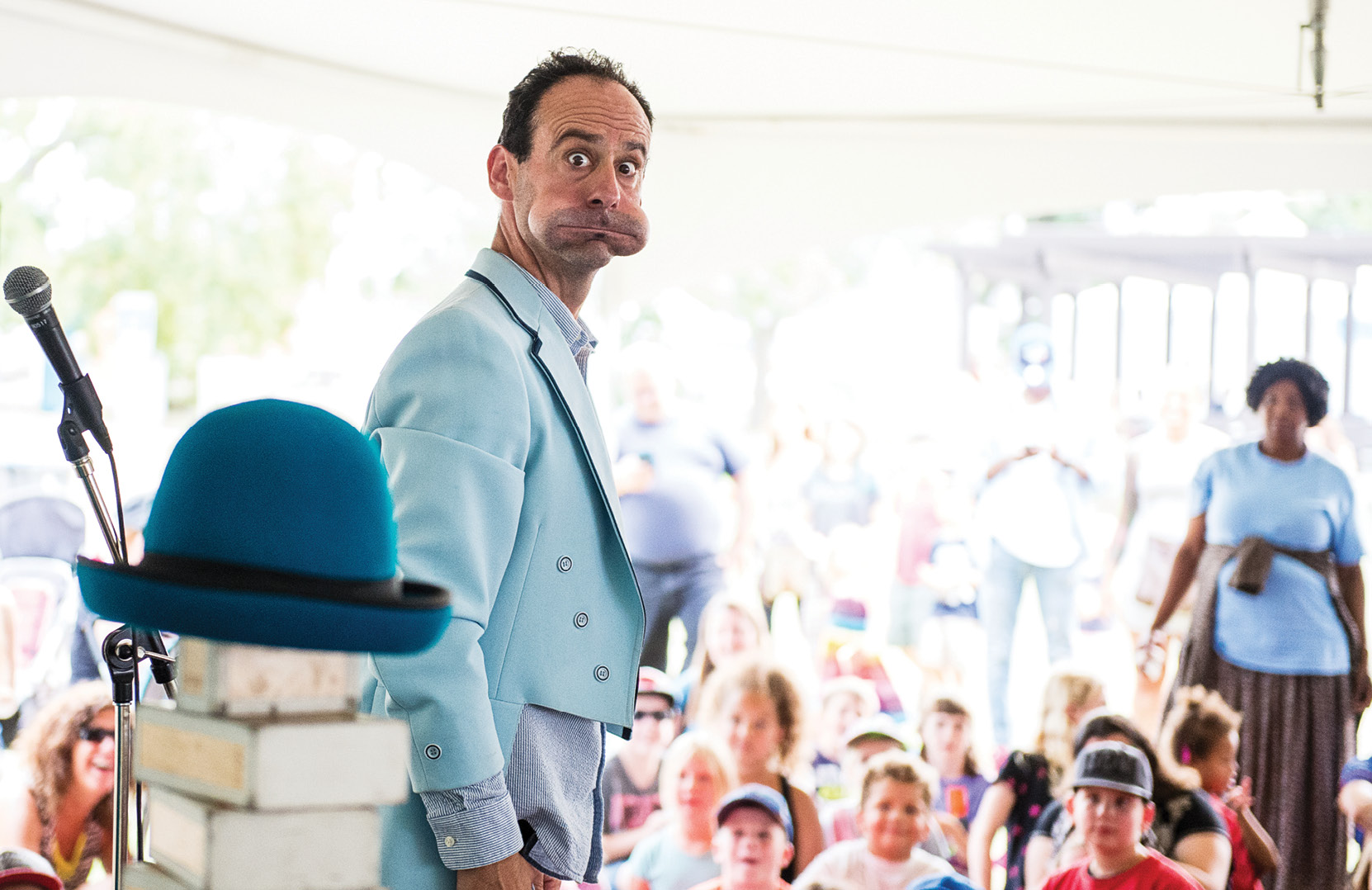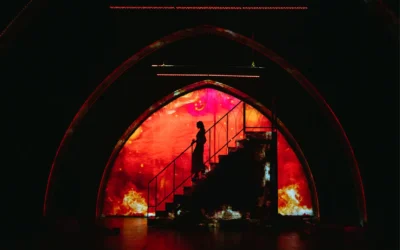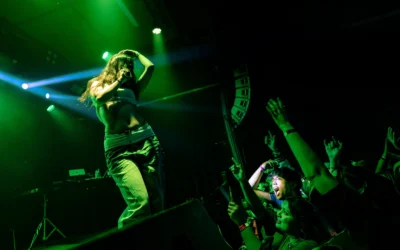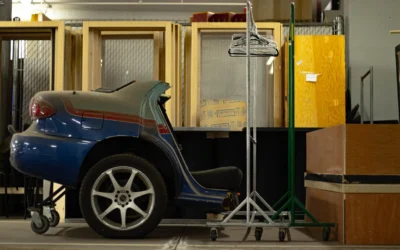Last April, Edmontonians could only watch in horror as all of the city’s famous summer festivals were cancelled one by one.
It started with NextFest and the Freewill Shakespeare Festival on April 8, followed by what felt like another cancellation announcement every single day as each organization reluctantly decided that it was too big of a health risk for staff and attendees — or at least that they wouldn’t sell enough tickets to justify the risk. The provincial government finally pulled the plug on the few remaining holdouts on April 24.
In retrospect, abandoning the festival plans was a good decision, considering research on the matter concludes that “the cancellation or suspension of (mass gatherings is) critical to pandemic mitigation.” At the time, however, there was still a lot of uncertainty around COVID-19, and for many, the realization that there would be no Heritage Festival or Taste of Edmonton was the first real indicator that the summer was going to be radically different that year.
Now, as we edge closer to spring and COVID is still around, that sense of precarity is back, for both fans and the organizers themselves.
“We’re still in the land of uncertainty,” says Adam Mitchell, executive director of the Edmonton International Fringe Festival. “We may have to re-imagine the entire experience to put something on that ensures the public safety and gathering restrictions are adhered to.”
Mitchell says last year’s cancellation of The Fringe was “the hardest decision (he has) ever made.” The festival, which is the largest and oldest fringe theatre festival in North America, is not only one of Edmonton’s most popular festivals from an audience perspective, but also provides an important platform and network for up-and-coming playwrights, cast members, technicians, and street performers. In 2019, The Fringe sold 147,358 tickets and cumulatively made $1.4 million for participating artists in the 258 different shows that were put on.
While he has nothing to officially announce, Mitchell says he believes that festivals like The Fringe are an imperative, and the team is doing everything in their power to put it on in some form.
“The artists, the arts community, and Edmonton as a community all need festivals and events to happen, even in modified ways,” he reasons. “We need artists to be working to bring joy and quality of life to the context of the pandemic, but we also need artists to be working to continue to thrive for themselves, even if it is in very constrained scenarios.”
There are a lot of reasons for festival organizers to sit on announcing whether anything will happen this year, one way or another. Alberta presently has more active cases than it ever has — 9,987 as of Jan. 22 — but there is also some indication that the province might get a hold of these numbers, which have been surging since September. The month of January came with relatively low daily new cases (they’re still pretty high), and mass vaccination is coming — possibly in time for summer. On top of that, we’ve already seen mass gatherings that have successfully kept people mostly safe from infection, such as the Black Lives Matter protests across the United States in June.
Festivals have to consider that depending on whether case numbers go up or down, either of which is possible, the rules around social distancing and sanitation could be very different by the time summer hits. They also have their own finances to consider, as people may be less likely to buy tickets regardless of whether they are officially allowed to attend by the City and Province.
Many festivals have started preparing themselves prior to announcing, apparently hopeful about the future circumstances. The Edmonton International Jazz Festival released a call for artist submissions on Jan. 4, which includes the disclaimer that the festival is “yet to be confirmed but definitely a work in progress.” Taste of Edmonton announced a tentative change of location on Jan. 19, at which point Donovan Vienneau told CTV he is “cautiously optimistic” the festival will happen.
Mitchell says he is cautiously optimistic as well, though he is certain that adjustments will have to be made. The main issue for The Fringe is that the outdoor portion of the festival is usually ungated, but this year there will likely need to be a limit on attendance, which requires fencing and staff. Mitchell also imagines that the festival will need to subsidize the street performers, who usually rely on dense crowds for sufficient tips.
Regarding the shows, which are put on in any of the various indoor performing arts theatres around Strathcona, Mitchell is “somewhat confident” that they will be able to happen, again with reduced attendance.
“We see the model of having both a live in-person ticket with small, socially distanced audiences, and a video-on-demand or livestream option,” he says. “This gives the artists back the opportunity to sell a full-house’s worth of tickets, which may bring enough value for them to take the chance to do their art.”
Last year, The Fringe put on “The Fringe that Never Was”: a fully digital festival of truncated plays, interviews, and comedy sketches. Mitchell says it was successful for what it was, and that he is definitely open to expanding a lineup of virtual content as well.
Even though COVID cases are higher now than at the time last year’s festival was cancelled, Mitchell maintains that he is “absolutely planning the celebration of the 40th International Fringe Festival.”
“We just did not have the same perspective or view on the world as we do today. I think at the time, we made the difficult decision to cancel when we did because of how much it takes to plan and execute a festival of our size.”
Others, like the Edmonton International Folk Music Festival’s producer Terry Wickham, are less optimistic.
Regarding last year’s cancellations, Wickham says “it was heartbreaking, but it was a very easy decision — an obvious decision, for me.” He’s also less optimistic about this summer’s potential, adding: “I always thought this was a two-year thing, not a one-year thing.”
“It’s highly unlikely that we will run, certainly not in a recognizable form,” he says.
Wickham admits that a diminished version of the festival would be possible, but in his opinion, it just wouldn’t be worth it.
“The whole idea is community — people getting together,” he says. “How would you do that with social distancing? ”
Besides the lack of attendees’ ability to pile onto tarps in Gallagher Park with their friends, Wickham also says the logistics of the festival make it nearly impossible to put on, unless the virus is completely eradicated.
“Right from the start — when the artists arrive, how do I pick them up? ” he says. “If you put them in a car, all of a sudden you’re breaking protocols because you’ve got a band sitting right beside each other for 40 minutes. Never mind that we’ve got a cafeteria, beer tents, hotel parties.”
“Everyone would need to be vaccinated,” he adds.
Once again, Wickham is not ready to announce if the festival is cancelled or not this year, saying there is always a possibility that health restrictions are lifted by the summer. He is also open to the idea of using Folk Fest’s resources to put on small, individual concerts.
“The minimum number of people (who can gather) we’re looking at is 250” to render the concerts worthwhile, he says. “Which is one in 100 of what we normally do.”
While some, like Folk Fest, appear less likely to happen than others, it is impossible to know exactly what the summer is going to look like.
For its part, the City of Edmonton appears to want to help the festivals move forward. In an Emergency Advisory Committee meeting from Jan. 7, deputy manager Rob Smyth said he is “in conversations with various festival groups,” about what health-related negotiations would need to be made to get them up and running. He gave the example of extending the festival permits to allow them to go on for longer, which would ideally make up for the caps on attendance.
But the future conditions are highly dependent on the provincial government’s vaccine rollout, the timeline of which is unclear. Premier Jason Kenney has said that he expects the general public to have access to the vaccine by June, while the government’s website indicates this won’t happen until fall. On top of the ambiguity, Pfizer unexpectedly decided to reduce its supply of the vaccine to Canada as a whole.
Mitchell compares looking ahead to what festival organizers will be able to do in the summer to “looking into a crystal ball.” While some are confident that you will be able to show up this summer, the only probable thing is that the events are not going to look the same as they once did.
Image courtesy of Marc J. Chalifoux Photography.





0 Comments